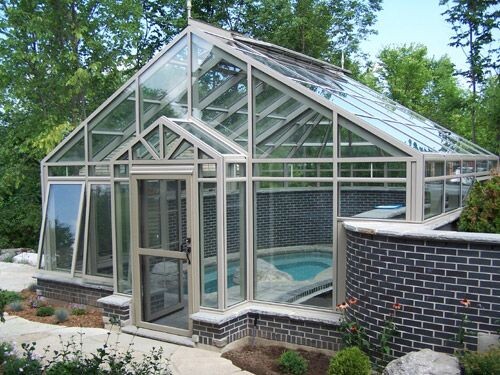
When it comes to choosing the right framing material for your pool enclosure, aluminum stands out as the top choice. Its exceptional qualities make it a preferred option among homeowners seeking durability, versatility, and aesthetic appeal. In this blog post, we will delve into the benefits of using aluminum for pool enclosure framing. From its strength and longevity to its low maintenance requirements and design versatility, discover why aluminum is the best option to enhance your pool area and create a functional and visually pleasing outdoor space.
Durability and Strength: Aluminum is renowned for its durability and strength, making it an excellent choice for pool enclosure framing. It can withstand various weather conditions, including rain, wind, and even exposure to saltwater or chlorine. Unlike other materials, aluminum does not rust or corrode over time, ensuring that your pool enclosure remains structurally sound and visually appealing for years to come.
Versatility in Design: Aluminum offers exceptional design versatility, allowing you to create a pool enclosure that suits your style and complements your outdoor space. It can be customized to fit any pool shape or size, making it suitable for both traditional and contemporary designs. Additionally, aluminum framing is available in a range of finishes, colors, and profiles, giving you the freedom to create a personalized look that seamlessly integrates with your home's architecture.
Low Maintenance: One of the significant advantages of aluminum pool enclosure framing is its low maintenance requirements. Unlike other materials, such as wood, aluminum does not require frequent painting or sealing to protect it from the elements. Aluminum's resistance to rust and corrosion means you can spend less time on upkeep and more time enjoying your pool area. Occasional cleaning with mild soap and water is usually sufficient to keep your aluminum framing looking fresh and new.
Excellent Light Transmission: Aluminum framing allows for ample light transmission, creating a bright and inviting pool enclosure. The slim profiles of aluminum frames provide maximum visibility, allowing you to enjoy panoramic views of your surroundings while still maintaining the necessary structural integrity. The abundant natural light enhances the overall aesthetics of the pool area and creates a pleasant and inviting atmosphere.
Eco-Friendly Option: Aluminum is a highly sustainable and eco-friendly material choice for pool enclosure framing. It is 100% recyclable, which means it can be reused and repurposed without compromising its quality. Opting for aluminum helps reduce your carbon footprint and supports environmentally conscious practices in construction and design.
Cost-Effective Solution: While the initial cost of aluminum pool enclosure framing may be slightly higher than other materials, its long-term cost-effectiveness makes it a wise investment. Aluminum's durability and low maintenance requirements translate to significant savings over time. You will spend less on repairs, replacements, and upkeep, making aluminum framing a cost-effective choice in the long run.
- Unlike Steel, which rusts due to the presence of iron in its composition, Aluminum does not rust. When continually exposed to oxygen and water, the surface of steel gradually becomes pale and brown, and it loses its aesthetic value. Even galvanized steel isn’t completely immune from rusting, as the paint will wear off (especially around the joints) with time due to the effect of weather extremities, thereby only delaying the inevitable. You’ll have no such worries with aluminum. Aluminum is naturally resistant thanks to the protective layer of aluminum oxide that forms around it when it interacts with oxygen and water. This layer shields the insides while also rendering corrosive elements inert, thereby ensuring the framing retains its visual appeal for years.
- Since it doesn't splinter, crack, rot, or rust, an aluminum frame requires little to no maintenance work. That saves you both time and money. Steel frames also don’t have too much work save for the periodic painting- particularly necessary in cold climates plagued by snow and ice- which brings labor and material expenses.
- Steel is about two and a half times denser than aluminum, so it makes for a more massive frame that requires some effort to build and repair. The opposite is the case for the latter, which is light and malleable.
- An aluminum or steel frame, what will it be? Both are solid options and your choice will largely depend on your specific needs and how much you are willing to spend. An aluminum or steel frame, what will it be? Both are solid options and your choice will largely depend on your specific needs and how much you are willing to spend.
